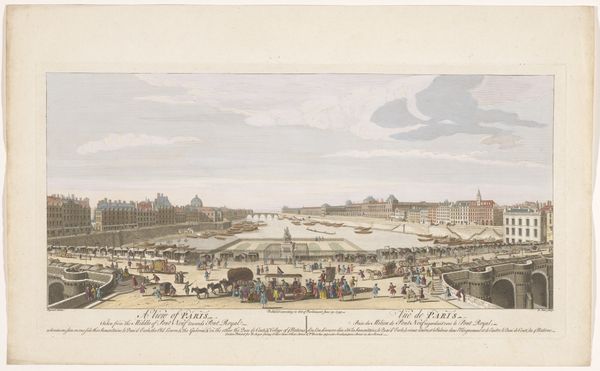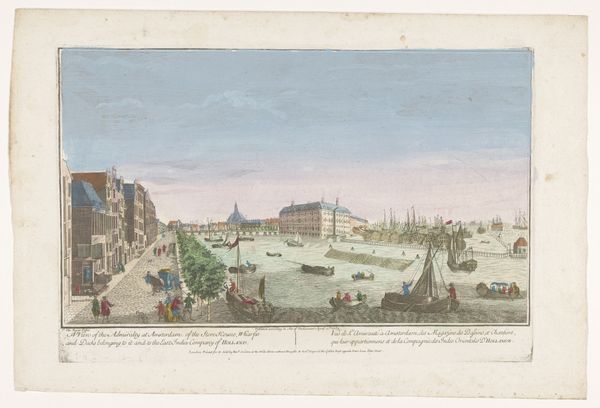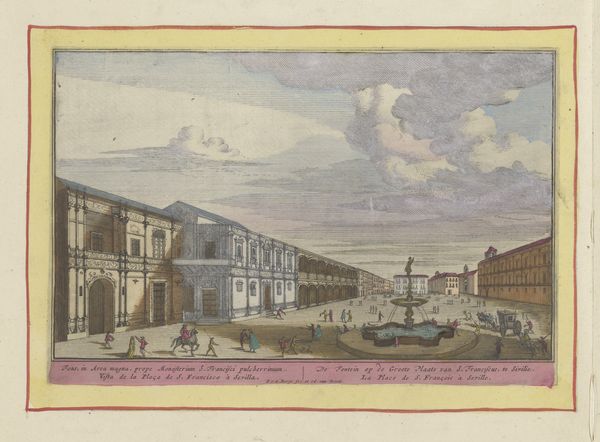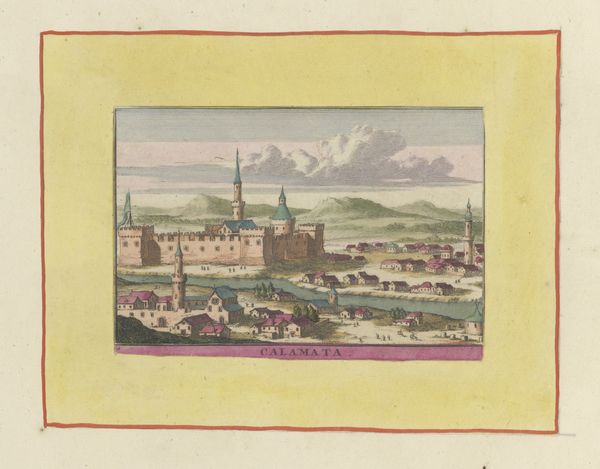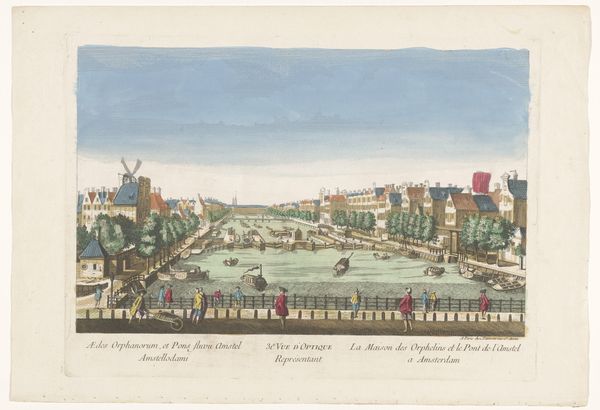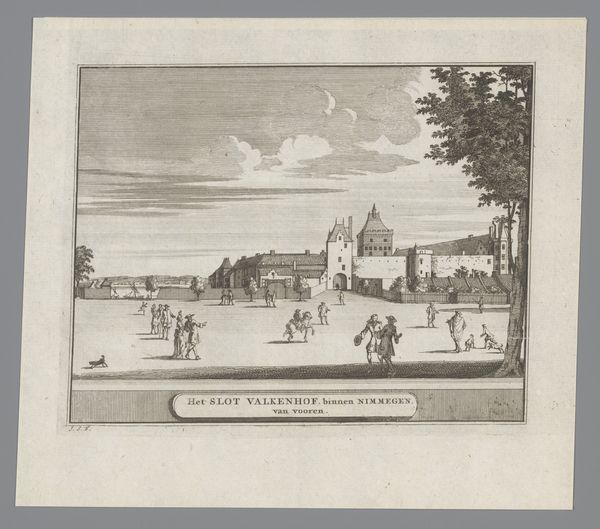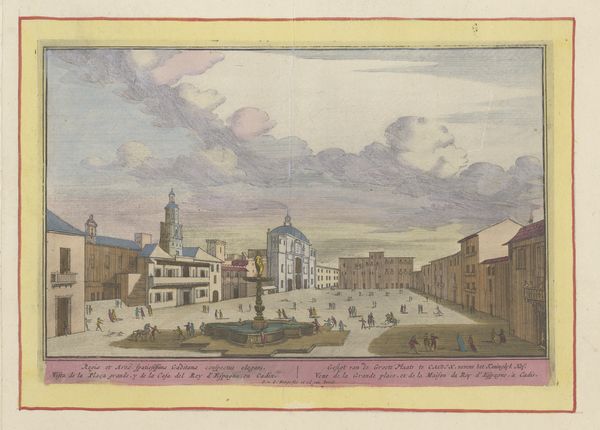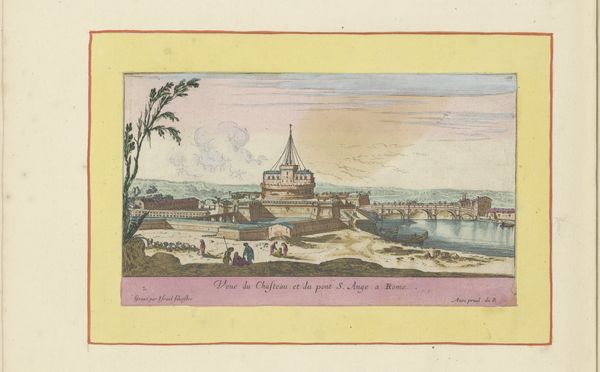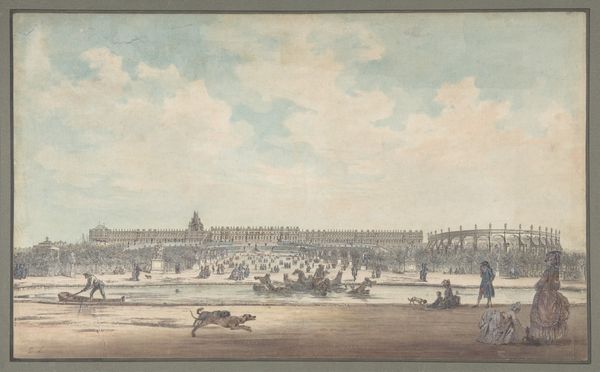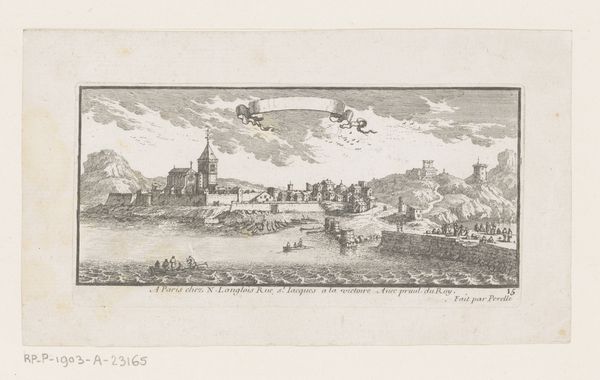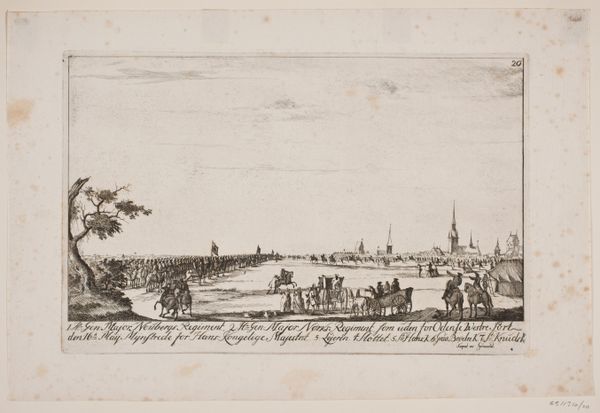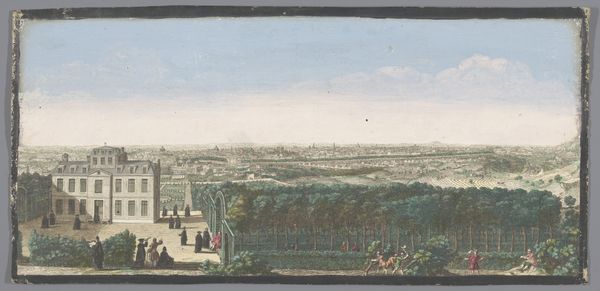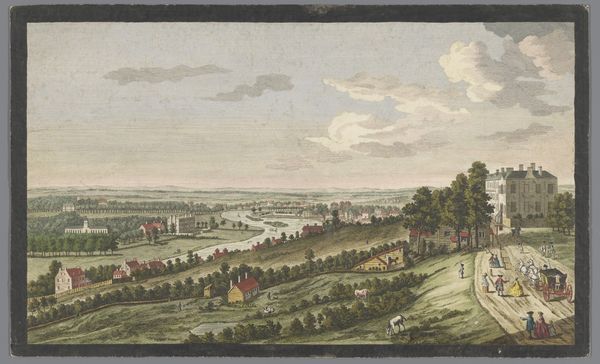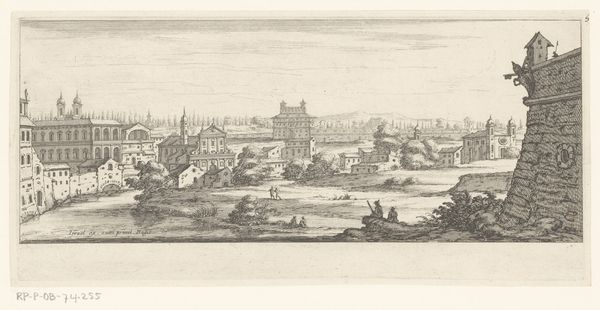
Grote vijver met schepen in de tuinen van het Palacio del Buen Retiro te Madrid 1694 - 1737
0:00
0:00
pietervandenberge
Rijksmuseum
print, engraving
#
baroque
# print
#
landscape
#
perspective
#
cityscape
#
engraving
Dimensions: height 167 mm, width 256 mm
Copyright: Rijks Museum: Open Domain
Curator: This print, dating from between 1694 and 1737, depicts the 'Grote vijver met schepen in de tuinen van het Palacio del Buen Retiro te Madrid', or the Great Pond with ships in the gardens, made by Pieter van den Berge. Editor: Immediately I notice a dreamlike quality. The colors, particularly the sky, give it a very gentle, almost fantastical feel. It seems so… peaceful. Curator: That atmosphere is beautifully captured by the baroque style, known for its grandeur but also its sense of idealized beauty. Berge has definitely prioritized an idyllic portrayal. Look at how the architectural elements, like those flanking obelisks, frame the scene. Editor: And how the perspective almost pulls you into the heart of the gardens. The artist guides the eye expertly, balancing formality and allure. Are those small boats? Curator: Yes, miniature ships sailed on the pond for royal entertainment, truly an extraordinary setup for courtly amusement! The engraving medium gives us a remarkable sharpness to see all these elements. Editor: This precision enhances the dreamlike feeling I mentioned before. It's as though the detail lends a greater reality, in which the boats move effortlessly as time slows. Curator: The level of detail that van den Berge includes—from the groups of people strolling the foreground to the architecture receding in the background— really places us at the palace! Editor: I like how he incorporates that almost cloud-like pattern in the middle, with just the perfect hue that draws in even more detail. It's just breathtaking. I almost feel like I could dive in there right now. Curator: It really is a captivating work! So many details in this engraving reflect its period and function. It makes us think how different are modern approaches, no?
Comments
No comments
Be the first to comment and join the conversation on the ultimate creative platform.
